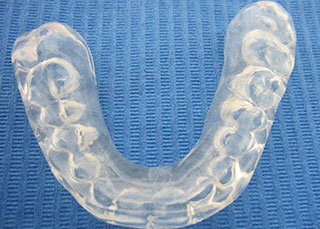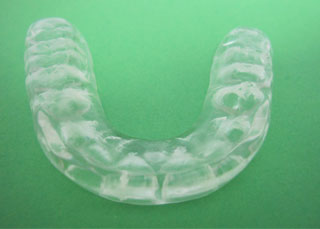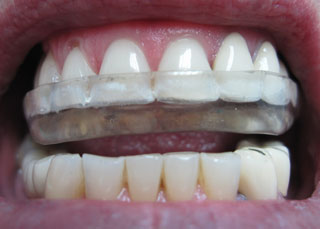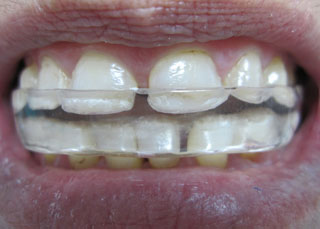
Dental bruxism
El bruxismo es el hábito involuntario de apretar y rechinar los dientes, inconscientemente afecta entre un 10 y un 20% de la población.
El término apretar significa juntar fuertemente los dientes superiores y los inferiores.
Este hecho de apretar los dientes ejerce presión sobre los músculos, los tejidos y otras estructuras que rodean la mandíbula, lo cual puede llevar a que se presente dolor e inflamación de la mandíbula, dolores de cabeza, dolor de oído, daños en los dientes.
Estos síntomas pueden causar trastornos de la articulación temporomandibular (ATM), desgastes de los dientes.
Aún no se ha llegado a un acuerdo sobre la causa exacta del bruxismo pero en muchas personas el agente desencadenante de esta afección puede ser el estrés. También si los dientes están desalineados y en mala oclusión.
Prevención del bruxismo
Cuando el bruxismo se produce de noche, la prevención se rebaja colocando una férula en los dientes superiores durante la noche.
Esta evitará el desgaste de los dientes y disminuirá la sobrecarga muscular.
La férula es un aparato de resina rígido que se coloca sobre la arcada dentaria, se ajusta a sus dientes y ayuda a prevenir las consecuencias del bruxismo dental.





